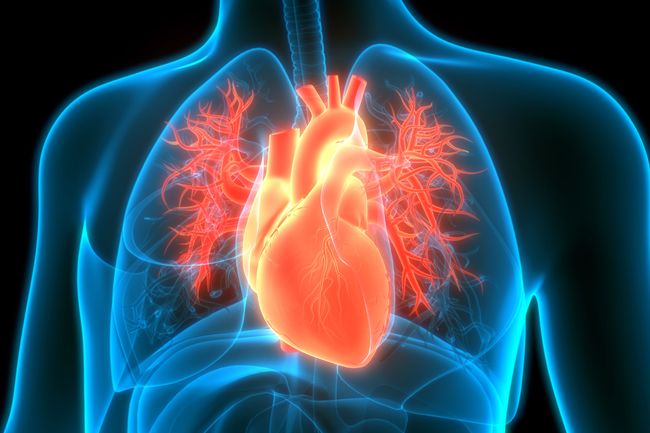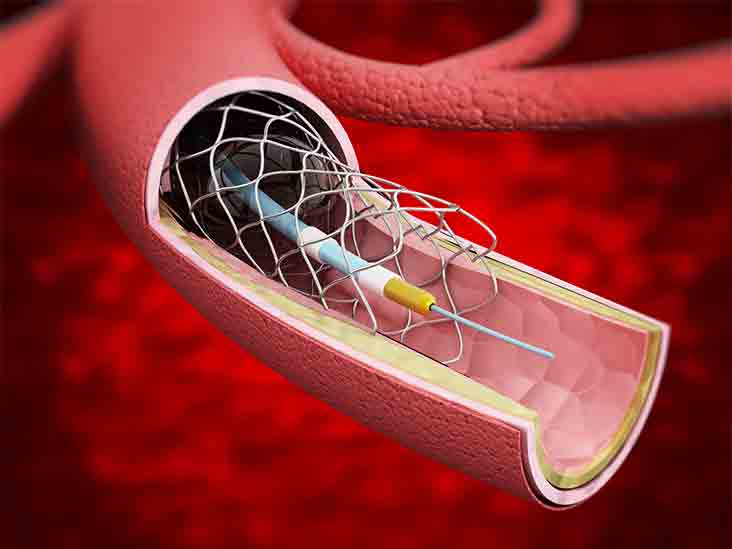When It Comes To Heart Issues, Never Take A Chance, Go For The Best, Go For Felix
Felix Heart Center
Get a 50% Discount on 1st Consultation

One Stop Solution For All Your Heart problems
Heart disease describes a range of conditions that affect your heart. Heart diseases include:
Blood vessel diseases such as coronary artery disease
Heart rhythm problems (arrhythmias)
Heart defects you are born with (congenital heart defects)
Heart valve diseases
Diseases of the heart muscle
Heart infection
Heart disease is the leading cause of death around the world. According to the American Heart Association, someone dies of a heart attack in every 39 seconds. Luckily, there are plenty of ways to diagnose and treat heart diseases with Felix Heart Center.
Types Of Heart Treatments Available At Felix
Angiography
Angiography is a type of X-ray used to check blood vessels.This highlights your blood vessels, allowing your doctor to see any problem.The X-ray images created during angiography are called angiograms.

Why is it done?
Angiography is used to check the health of your blood vessels and how blood flows through them. Your doctor may recommend that you have a coronary angiogram if you have:
- Symptoms of coronary artery disease, such as chest pain (angina)
- Pain in your chest, jaw, neck or arm that cannot be explained by other tests
- New or increasing chest pain (unstable angina)
- A heart defect you were born with (congenital heart disease)
- Abnormal results on a non-invasive heart stress test
- Other blood vessel problems or a chest injury
- A heart valve problem that requires surgery
It can help to diagnose or investigate several problems affecting blood vessels, including:
- Atherosclerosis – Narrowing of the arteries, which could mean you’re at risk of having a stroke or heart attack
- Peripheral arterial disease – Reduced blood supply to the leg muscles
- A brain aneurysm – A bulge in a blood vessel in your brain
- Angina – Chest pain caused by reduced blood flow to the heart muscles
- Blood clots or a pulmonary embolism – A blockage in the artery supplying your lungs
- A blockage in the blood supply to your kidneys
Angiography may also be used to help org plan treatment for some of these conditions.
The test can take between 30 minutes and 2 hours. You’ll usually be able to go home a few hours afterwards.
Angioplasty
Coronary angioplasty, also called percutaneous coronary intervention, is a procedure used to open clogged heart arteries. Angioplasty uses a tiny balloon catheter that is inserted in a blocked blood vessel to help widen it and improve blood flow to your heart.

Angioplasty can improve symptoms of blocked arteries, such as chest pain and shortness of breath. Angioplasty is also often used during a heart attack to quickly open a blocked artery and reduce the amount of damage to your heart.
Why is it done?
Angioplasty is used to treat the buildup of fatty plaques in your heart’s blood vessels. This buildup is a type of heart disease known as atherosclerosis.
Angioplasty may be a treatment option for you, if:
- You have tried medications or lifestyle changes but these have not improved your heart health.
- You have chest pain (angina) that is worsening.
- You have a heart attack. Angioplasty can quickly open a blocked artery, reducing damage to your heart
Angioplasty isn’t for everyone. Depending on the extent of your heart disease and your overall health, your doctor may determine that coronary artery bypass surgery is a better option than angioplasty for you.
You may need coronary artery bypass surgery if:
- The main artery that brings blood to the left side of your heart is narrow
- Your heart muscle is weak.
- You have diabetes and multiple severe blockages in your arteries.
TMT
A treadmill test (TMT) or cardiac stress test helps determine how far your heart can go before an abnormal rhythm or blood flow to the heart muscle drops. It is primarily used to help your doctor determine if your heart receives enough oxygen and proper blood flow when it needs it most, such as when you are exercising.
It is prescribed for people who have been experiencing chest pains or other symptoms of coronary heart disease (also called coronary artery disease).
An exercise stress test may also be used to help determine your level of health, especially if you are starting a new exercise program. This allows your doctor to learn what level of exercise you can safely handle.
An exercise stress test may also be used to help determine your level of health, especially if you are starting a new exercise program. This allows your doctor to learn what level of exercise you can safely handle.
If you are a smoker over 40 years old, or if you have other risk factors for heart disease, you should talk to your doctor to see if an exercise stress test is a good idea for you.

Why is it done?
This test takes about 25-30 minutes of which the exercise time is 7-12 minutes and needs a bit of preparation:
A TMT helps in:
- Assessing unexplained but steady chest pain and determine if the cause is coronary artery disease.
- Assessing if there are abnormal heart rhythms.
- Evaluating the effectiveness of therapy or medication for chest pain or irregular heartbeat.
- Checking whether sufficient blood flows to your heart as you get more active.
- Checking how well your heart valves are working.
- Checking whether the arteries have re-narrowed after angioplasty, especially if there is chest pain or other symptoms.
- Detecting if symptoms such as fainting, palpitations or dizziness are related to heart disease.
- Determining the ability of the heart to withstand exercise in persons who have heart disease, have had a heart attack or heart surgery.
- Developing a safe exercise routine.
- Screening for CAD (Coronary Artery Disease) in a person with no symptoms, especially if the individual is prone to CAD.
Points to be kept in mind while going for TMT Test
- Carry your jogging attire and shoes along.
- Avoid having a heavy meal before the test.
- Consult your doctor regarding the medication you take.
- You may be asked to temporarily discontinue the medication for a few days before the test.
Stress Echocardiography
Under this type of surgery, all the damaged parts of the joint are removed and replaced with artificial implants. They improve the mobility of the joints and provide significant relief in the pain. This type of surgery is generally conducted on people with acute arthritis or joint injury. Some common types of total joint replacement surgery include knee, shoulder and hip.
During a stress echocardiography, you’ll exercise on a treadmill or stationary bike while your doctor monitors your blood pressure and heart rhythm.
When your heart rate reaches peak levels, your doctor will take ultrasound images of your heart to determine whether your heart muscles are getting enough blood and oxygen while you exercise.

When is it done?
Your doctor may order a stress echocardiography test if you have chest pain that they think is due to coronary artery disease or a myocardial infarction, which is a heart attack. This test also determines how much exercise you can safely tolerate if you’re in cardiac rehabilitation.
The test can also tell your doctor how well treatments such as bypass grafting, angioplasty, and anti-anginal or antiarrhythmic medications are working.
The echocardiography stress test is very reliable. Your doctor will explain your test results to you. If the results are normal, your heart is working properly and your blood vessels are probably not blocked due to coronary artery disease.
Abnormal test results may mean that your heart isn’t pumping blood effectively because there’s a blockage in your blood vessels. Another reason could be that a heart attack damaged your heart.
Diagnosing coronary artery disease and assessing your risk for heart attacks early on can help prevent future complications. This test can also help determine if your current cardiac rehabilitation plan is working for you.
Symptoms
The symptoms of heart disease depend on the specific type a person has. Also, some heart conditions cause no symptoms at all.
That said, the following symptoms may indicate a heart problem:
- Angina, or chest pain
- Difficulty in breathing
- Fatigue and lightheadedness
- Swelling due to fluid retention, or edema
- In children, the symptoms of a congenital heart defect may include cyanosis, or a blue tinge to the skin, and an inability to exercise.
Some signs and symptoms that could indicate heart attack include:
- Chest pain
- Breathlessness
- Heart palpitations
- Nausea
- Stomach pain
- Sweating
- Arm, jaw, back, or leg pain
- A choking sensation
- Swollen ankles
- Fatigue
- An irregular heartbeat
Heart attack can lead to cardiac arrest, which is when the heart stops and the body can no longer function. A person needs immediate medical attention if they have any symptoms of a heart attack.
Diagnosis
Your doctor will perform a physical exam and ask about your personal and family medical history. The tests you’ll need to diagnose your heart disease depend on what condition your doctor thinks you might have. Besides blood tests and a chest X-ray, tests to diagnose heart disease can include:
- Electrocardiogram (ECG or EKG)
- Holter monitoring
- Echocardiogram
- Stress test
- Cardiac catheterization
- Cardiac Computerized Tomography (CT) scan
- Cardiac Magnetic Resonance Imaging (MRI)
Get a 50% Discount on 1st Consultation
OUR SERVICES
Our Cardiology Department provides the best of services in terms of accurate diagnosis and professional treatment.
- 24X7 Cath Lab
- 24X7 Cardiac Emergency
- 24X7 Non-Invasive Cardiac Services
- 24X7 Angioplasty
- 24X7 Angiography
- Pediatric Cardiology
- Sweating
- TMT
- Echo Cardiography
- Stress Echo Cardiograph
- Cardiac Health Checkup
- Holter Monitoring
- Peripheral Angiography
- Pacemaker Implantation (Temporary and Permanent)
Offers

Up to 50% off on surgery

Free Diet Chart for Diabetic & Heart Patients

on TMT & ECHO Test
Why Choose Us




Why Choose Us?
- NABL & NABH Accredited Hospital.
- Our doctors are trained in standardized care protocols that help deliver consistent patient care.
- We follow vigilant and high quality & infection control system.
- Internationally recognized treatment protocols.
- We have experienced and highly qualified doctors.
- 95% positive treatment outcome.
- We are well-equipped with modern equipment.
- We use advanced scientific technology for better treatment outcome.

Awards & Industry Recognition



On Panel of CGHS, ECHS, ESI, DGHS, All TPA, PSUs,
Health Insurance Companies, Noida & Gr. Noida Authority
Media Mention









Felix Hospital is proud and equipped to provide all Medicial Facilities to our community 24*7
Address: NH-01, Sector 137, Expressway, Noida, Uttar Pradesh 201305
24 X 7 Helpline: 7290047401
Email: info@llp.felixhospital.com
For Online Consultation: +91-7290047401
For 24X7 Ambulance: +91-7835999777
For Medicine Delivery: +91-7835999111
Lab Sample Collection: +91-7835999333
Corona Queries Whatsapp No: +91-7290047401
